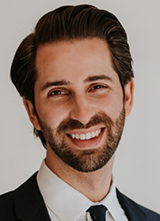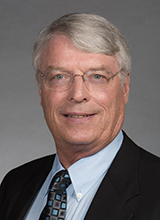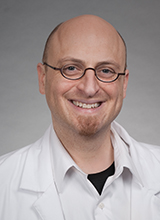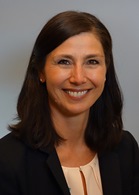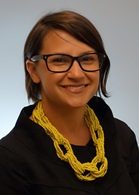I have always been interested in the thoughts and feelings that drive us. This led me to major in Psychological and Brain Sciences at Johns Hopkins University and to later enroll in the psychiatry residency training program at Washington University in St. Louis. Since completing training, I have had an excellent experience working at UW/Harborview’s emergency and inpatient psychiatry services. My teaching interests include the psychiatric interview, documentation, and fundamentals of clinical decision-making. Clinically, I enjoy taking a holistic approach to care, utilizing interventions across behavioral changes, pharmacology, and psychotherapy.
I am an adult psychiatrist and palliative medicine physician within the Department of Psychiatry and Behavioral Sciences. I am dual board certified within the American Board of Psychiatry and Neurology and American Board of Internal Medicine. I practice at Harborview Medical Center (HMC) on both palliative care consult and inpatient psychiatry teams. I chair HMC Psychiatry Quality Improvement (QI) committee. My main areas of interest and expertise are in: the care and treatment of patients facing serious mental illness (SMI), particularly those with co-occurring chronic medical illness; complex communication skills with patients and families; the use of person-centered language in medicine; interprofessional teamwork. I provide clinical teaching and QI mentorship to medical trainees such as residents and medical students. I am the former co-director of the interprofessional health-sciences elective “The Healer’s Art.” I am a member of the Northwest Narrative Medicine Collaborative.
Personal Statement
I am a Professor of Psychiatry and Director of the Addictions Division in the Department of Psychiatry and Behavioral Sciences at the University of Washington School of Medicine in Seattle, Washington. I am also the clinical director of addictions treatment services at Harborview Medical Center, and work in the psychiatric rehabilitation and recovery services.
I am board-certified in Psychiatry by the American Board of Psychiatry and Neurology with Added Qualifications in Addiction Psychiatry, and the American Board of Addiction Medicine. A Distinguished Fellow of the American Psychiatric Association and a Fellow of the American Society of Addiction Medicine, I am on the editorial board and a reviewer for several scientific journals and holds a number of research grants from the National Institute of Health.
Personal Statement
I am a board certified psychiatrist at Harborview and a UW assistant professor of Psychiatry and Behavioral Sciences.
I help patients make sense of troubling situations that interfere with their ability to move forward. I also promote mindfulness and safety from drug interactions. I appreciate the opportunity to be with patients and their families during defining crises and opportunities for change, learn from patients and staff, and mentor the next generation of healthcare professionals.
My clinical interests include bipolar and related disorders, anxiety disorders, depressive disorders, obsessive compulsive and related disorders, personality disorders, schizophrenia spectrum and other psychotic disorders and substance-related and addictive disorders.
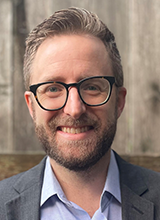
Personal Statement
My research is focused on (1) developing innovative mHealth assessments and interventions for schizophrenia-spectrum disorders and cross-diagnostic persecutory ideation, as well as (2) “engagement mHealth,” or the development of mobile health interventions that increase the likelihood that underserved populations present to and receive evidence-based treatment, with a particular focus on young adults at risk for psychosis and their families. My research is supported by a NARSAD Young Investigator Award from the Brain and Behavior Research Foundation and multiple grants from NIMH including a K23 Mentored Patient-Oriented Research Career Development Award.
Prior to my faculty position at UW, I was an Advanced Fellow in VA Health Services Research and Development and the Department of Health Services at UW. I completed my clinical psychology internship at the VA Puget Sound Health Care System, where I was awarded the APA Division 18 Outstanding VA Trainee Award. Prior to internship, I completed my undergraduate and doctoral training at the University of North Carolina at Chapel Hill. Throughout my training, I have been dedicated to services for individual with serious mental illness, with experience in an inpatient state hospital, VA psychosocial rehabilitation, intensive outpatient and dual-diagnosis clinics, and in coordinated specialty care for young people with early psychosis.
In addition to my program of research and clinical work, I am committed to clinical supervision and training. I currently lead the development of one of the first clinical training sequences designed for frontline clinicians integrating mHealth into community mental health. I was the first-ever graduate student to win UNC’s David Galinsky Award, an honor recognizing excellence in clinical supervision that had previously only ever been won by faculty. I am currently active in providing supervision in CBT to third-year psychiatry residents at UW.
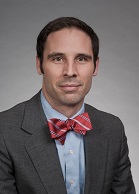
Personal Statement
My primary interest is on determining how behavioral technologies can be used to improve alcohol and drug abuse outcomes for those suffering from addiction health disparities. Behavioral technologies are non-talk therapy approaches to addiction treatment, such as motivational incentives where we provide rewards for people who abstain from or reduce their drinking. This low-cost, strength based approach to addiction can be implemented in low-resources settings by non clinicians. In fact, our group is investigating how smartphones might be used to implement this treatment, allowing us to reach the millions of individuals suffering from alcohol problems worldwide.
My second research interest in evaluating the accuracy of alcohol biomarkers in addiction treatment settings. These include alcohol urine tests, such as ethyl glucuronide (EtG) and mobile phone linked Bluetooth breathalyzers. These tools allow us to accurately assess the success of alcohol treatments, as well as provide valuable research tools.
Importantly all of my research studies are conducted in collaboration with two communities that suffer disproportionately high rates of alcohol and drug misuse, 1) adults with severe mental illnesses, like schizophrenia and bipolar disorder and 2) American Indians and Alaska Natives. My research team and I work closely with community partners who are providing addiction treatment to these populations with the goal of reducing the burden of alcohol and drug use in these communities.
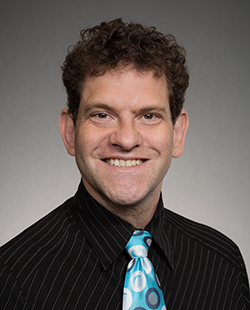
Personal Statement
Dr. Daniel Krashin is an Assistant Professor at the University of Washington working in Psychiatry and Pain Medicine. He works with both inpatient and outpatient pain patients, clinics and hospital staff to collaborate on treatment of patients, but also works on improving systems of care delivery to benefit patients and populations across the continuum of care. Dr. Krashin has extensive experience working with underserved and vulnerable populations including the chronically mentally ill, recent immigrants, and HIV patients in the treatment of both psychiatric illness and chronic pain. He has lectured extensively and authored a number of publications in the areas of pain management, comorbid pain and psychiatric disorders, substance abuse in the setting of pain treatment, and pharmacology of opioids and other pain relieving medications. He works closely with residents and pain fellows and participates in teaching the future generations of psychiatrists, anesthesiologists, and pain providers. He is board certified in both Psychiatry and Pain Medicine.
Personal Statement
I am a clinical psychologist with specialized training in serious mental illness and forensic psychology. I specialize in evidence-based treatments for schizophrenia spectrum and other psychotic disorders. My clinical work and research converges on individual-, family-, and systems-level supports to optimize mental health care in both community and residential settings and reduce the likelihood of criminal justice system engagement among individuals with serious mental illness.
Personal Statement
I have expertise in managing acute psychiatric presentations with research experience in studying neuroanatomy and the synaptic effects of schizophrenia. I have published in fields of neuroscience, schizophrenia, autism, and anxiety disorders. I also actively manage a telepsychiatry clinic based in eastern WA, and coordinate psychiatric management of emergency room mental health evaluations. I am very interested in the education of residents and fellows rotating on the consultation service, and participating in educational curriculum and recruitment committees.
